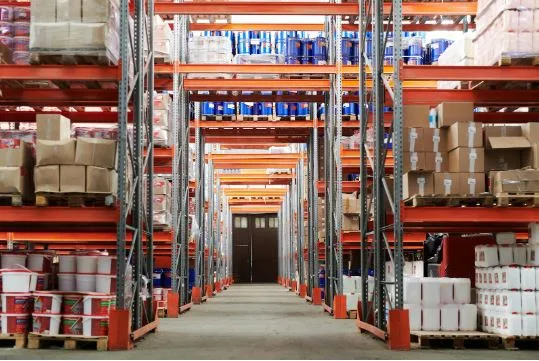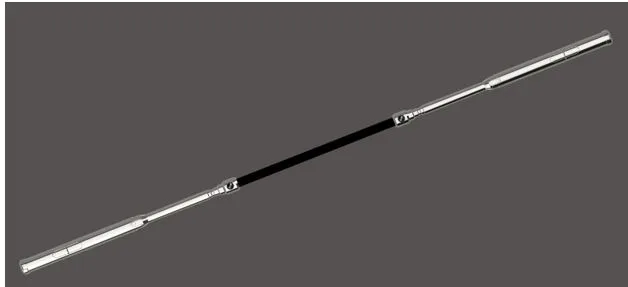Water-Soluble, Strong and Safe: The Many Benefits of Polyvinyl Alcohol
Polyvinyl is quietly doing great things, from easier weaving to environmentally friendly packaging. Learn why this low-key polymer is gaining traction as the material of choice for innovation and environmentalism.
Polyvinyl alcohol is more than a mouthful of a name; it’s a water-soluble wonder used in textiles, paper, coatings, packaging and beyond. It’s admired for its flexibility, strength and ability to form reliable films. This article explores the latest uses of this versatile polymer and explains why it’s gaining attention across industries.
What Makes Polyvinyl Alcohol Unique
Polyvinyl alcohol develops strong, pliable films. It also bonds readily to other materials, which is why a polyvinyl alcohol adhesive is valued for its reliability in different applications. In addition, it resists oils and solvents. Better still, it dissolves in water, making it ideal as a biodegradable or clean-wash material. In textiles, it serves to pre-size yarns before weaving. It also increases abrasion and elasticity, which decreases yarn breakage. That contributes to higher speed and efficiency in high-speed looms.
Due to the reduced usage compared to starch, the procedure becomes cleaner and less wasteful. On paper, it’s an industry-leading binder. It increases printing’s strength and produces sharper outputs. It also serves as an optical brightener carrier. That makes the paper whiter and brighter. The added performance comes without increased cost or additional complexity, benefiting the manufacturer, the printers and the consumers.
From Packaging to Textiles
In garment manufacturing, polyvinyl alcohol-treated yarn is tougher and more versatile. It sheds less while weaving. That keeps equipment cleaner. It also decreases yarn wastage, saving time and raw material. The outcome is that the material is easier to manipulate and has smoother production lines.
In paper products like tissue, paper towels, and napkins, it acts as a creping adhesive. It forms microfolds to create softness and absorbency. However, it can easily be washed off by water. For the manufacturer, this means consistent product performance and fewer downtime hours.
It has superior performance in packaging. It goes into creating water-soluble films such as laundry pods and pouch packaging. They fully dissolve when used, so there’s no leftover plastic mess. That combination of convenience and environmental stewardship doesn’t come often. For the daily consumer, it comes naturally. For industries, it’s the intelligent way of giving equal importance to performance and sustainability.
The Contribution of Water-Soluble Products
Water-soluble polyvinyl alcohol films are environmentally friendlier alternatives. They are soluble in water, which decreases packaging litter. That’s particularly significant because global interest continues to rise in sustainable packaging. The polymer biodegrades under certain conditions. The product lowers the need to rely on traditional plastics. In combination with material like molded pulp, it can create fully biodegradable packaging solutions.
The opportunity exists in food services, consumer products and even the agricultural industry. Environmental studies show that polyvinyl alcohol helps reduce CO₂ emissions when used in applications like interlayers in laminated glass. Imagine cars that stay cooler and lighter and burn less fuel as a result. That kind of impact makes it a green choice with real-world benefits. As businesses look to lower carbon footprints, this polymer provides practical solutions.
Healthcare and Beyond
Polyvinyl alcohol isn’t just industrial. It’s medical-grade, too. It’s used in contact lenses and hydrogels because it’s gentle on the body. Doctors value it for its stability and safety. Researchers are even testing new uses in regenerative medicine, where flexible materials are essential. It has uses in 3D printing of drugs and in the precise delivery of drugs. That might translate into pills that release more consistently.
It may also translate into medications formulated to fit patient requirements perfectly. For health, that adaptability is revolutionary. Personal care firms employ it in such products as peel-off masks, creams and lotions. It contributes to the formation of smooth films and to texturizing. In addition, it serves as a tablet and cosmetic binder. These daily applications remind us that the creativity is not just about high-tech labs. But it also appears in the products lining our shelves.
Why Polyvinyl Alcohol is a Material of the Future
This polymer’s versatility makes it strong and sustainable. It enables predictable and strong performance in emulsions and films in adhesives, films, coatings, fabrics, paper, packaging, medical devices and personal care products. In tissue-making, it improves machine creping, which means better softness and efficiency. It’s also crucial in emulsion polymerization. Grades tailored for this use result in smooth production, minimal foaming, reliable drying and fewer clogs. These small details translate into real efficiency gains.
It even saves shelf space in textiles. Less of it is needed and it bonds better. In coatings, it delivers ghost-free, even coverage. Water sensitivity can also be tuned with precision. In packaging, it pairs strength with biodegradability. And in adhesives, it provides reliable bonding power. A polyvinyl alcohol adhesive delivers strength while remaining clean and safe for the environment. It proves that performance and responsibility can go hand in hand.
Polyvinyl alcohol might not be a familiar name—but it should be. It’s a polymer of practical use, employed in industries from fashion to food, healthcare to packaging. It’s a true rarity, a polymer of remarkable strength, water solubility and environmentally friendly credentials. This polymer excels in strengthening textiles, developing environmentally friendly packaging, making paper items softer, or constructing medical devices. Sustainability and clean-up are designed in. As industries turn toward better and better greener material solutions, polyvinyl alcohol becomes an excellent option with a future as promising as its uses.





